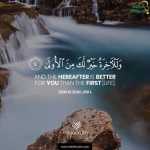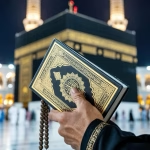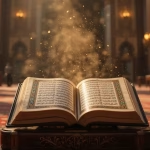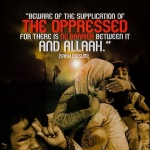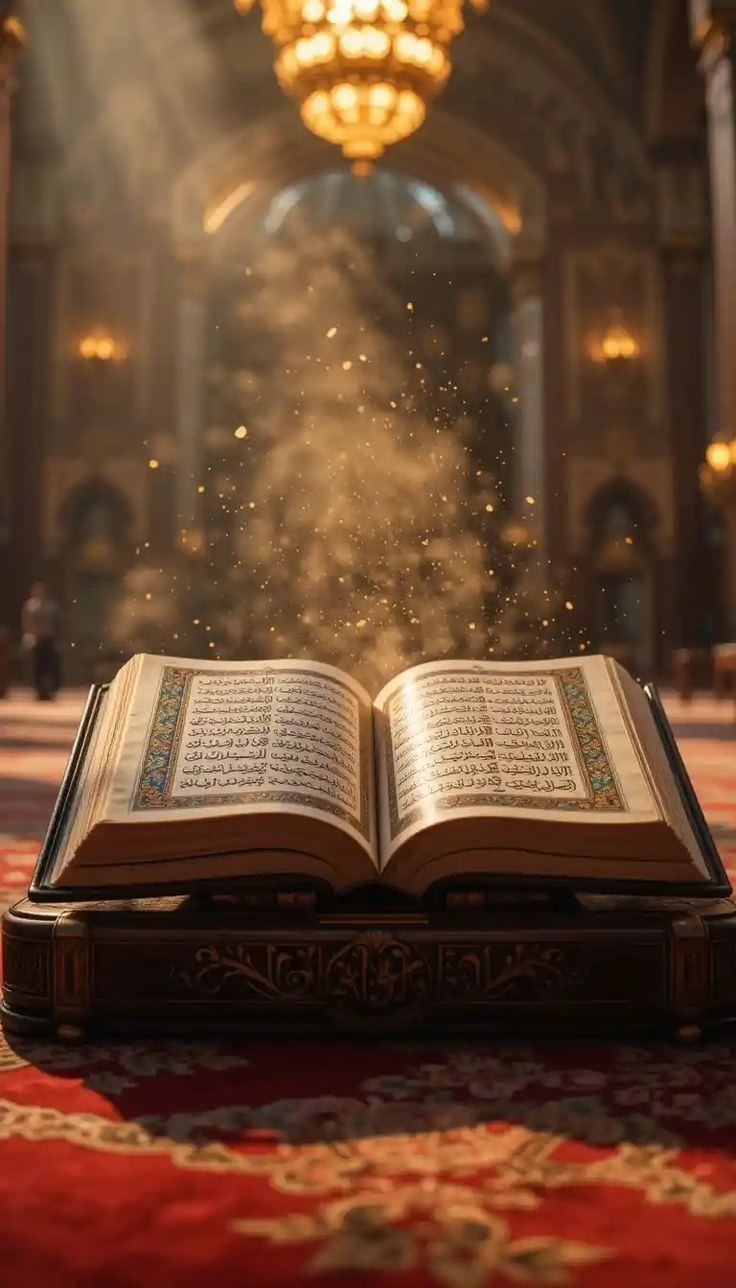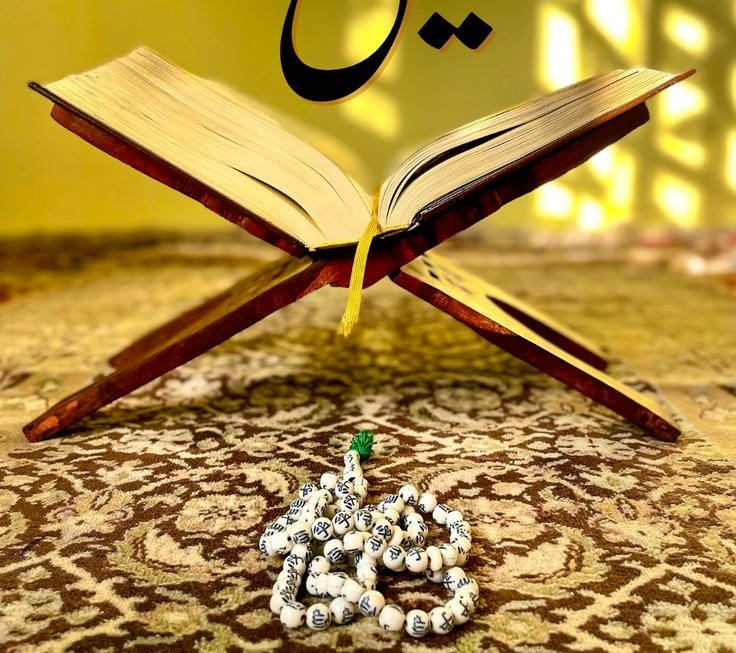Unlocking the Meaning: A Deep Dive into Surah Al-Qiyamah
Posted on [Insert Date] | Category: Tafseer, Quran, Hereafter
Surah Al-Qiyamah (The Resurrection) is a powerful, early Meccan Surah that strikes at the very heart of the Quranic message. It’s a relatively short chapter, but its themes are immense: the reality of the Day of Judgment, the power of Allah to resurrect, and a profound rebuttal to the doubts of the disbelievers.
For a Muslim, understanding this Surah is a spiritual wake-up call. It pulls back the curtain on the life to come and forces us to confront our own preparation for that inevitable Day.
Let’s delve into a detailed tafseer (exegesis) of its verses.
Surah Al-Qiyamah at a Glance
· Surah Number: 75
· Number of Verses: 40
· Revelation Period: Meccan
· Key Themes: The Reality of Resurrection, The State of the Deniers, The Assurance of Revelation, A Glimpse of the Day of Judgment, Human Nature and Accountability.
Verse-by-Verse Tafseer: A Journey of Awe and Reflection
Part 1: The Certainty of the Hour and Human Denial (Verses 1-15)
“I swear by the Day of Resurrection. And I swear by the self-reproaching soul.” (Quran 75:1-2)
The Surah opens with a powerful, divine oath. Allah swears by the Day of Resurrection itself—emphasizing its absolute certainty. He then swears by the an-nafs al-lawwamah—the self-accusing soul. This is the innate conscience within every human that feels guilt and regret after committing a sin. On the Day of Judgment, this very conscience will bear witness against the individual.
“Does man think that We will not assemble his bones? Yes. We are Able to restore even his very fingertips!” (Quran 75:3-4)
Here, Allah addresses the primary doubt of the disbelievers: “How can bones, once decomposed, be brought back to life?” The response is a resounding “Yes!” Not only is it possible, but Allah’s power is so complete that He can reconstruct every minute detail, down to the unique fingerprints of every person. This is a profound answer to a modern scientific fact we now take for granted.
“But man desires to continue in sin. He asks, ‘When is this Day of Resurrection?’” (Quran 75:5-6)
This verse offers a deep psychological insight. Often, the denial of the Hereafter is not based on intellectual reasoning but on a desire to live without accountability. The question “When will it be?” is asked not out of curiosity, but out of skepticism and a wish to delay the inevitable.
The passage concludes with a chilling scene on the Day of Judgment (verses 7-15), describing the moon eclipsed, the sun and moon joined, and man finally understanding. On that Day, he will be a clear witness against himself, and his excuses will be of no avail.
Part 2: The Revelation and the Prophet’s Diligence (Verses 16-19)
“Do not move your tongue with it to hasten with it. Indeed, upon Us is its collection and its recitation.” (Quran 75:16-17)
This is a beautiful, intimate moment. The Prophet Muhammad (ﷺ), upon receiving revelation from Jibreel (AS), would repeat the words fervently, fearing he might forget them. Allah, in His infinite mercy, reassures him: Don’t rush; it is Our responsibility to preserve it in your heart and to enable you to recite it. This is a foundational proof for the preservation of the Quran.
“So when We have recited it, then follow its recitation. Then upon Us is its clarification.” (Quran 75:18-19)
Once the revelation is complete, the Prophet is commanded to recite it as it has been established in his heart. Furthermore, Allah takes responsibility for its bayan—its explanation and clarification. This points to the Sunnah of the Prophet (ﷺ), which is the living explanation of the Quran.
Part 3: A Stark Contrast: The Faces on Judgment Day (Verses 20-25)
“No! But you love this fleeting life and neglect the Hereafter.” (Quran 75:20-21)
The word “Kalla” (نay!) is a strong rebuttal. It cuts through the denial and highlights the human flaw of being enamored with the immediate, transient pleasures of this world (dunya) while turning away from the eternal life to come (Akhirah).
The Surah then paints a vivid picture of two groups of people:
· The Believers: “Some faces on that Day will be radiant, looking at their Lord.” (Quran 75:22-23). Their faces will be shining with joy and beauty, and the ultimate source of their bliss will be the promise of looking upon their Creator—the greatest reward in Paradise.
· The Disbelievers: “And some faces on that Day will be gloomy, knowing that a crushing disaster is about to befall them.” (Quran 75:24-25). Their faces will be dark with despair and fear, anticipating a devastating punishment.
Part 4: The Final Rebuttal and Human Creation (Verses 26-40)
The Surah returns to the scene of death, describing the soul reaching the collarbone at the moment of death, and the people around realizing this is the final separation (verses 26-30).
Then comes the ultimate argument:
“Does man think that he will be left neglected? Was he not once a sperm-drop emitted? Then he became a clinging clot; then He created and proportioned? And made of him two sexes, male and female? Is He not Able to give life to the dead?” (Quran 75:36-40)
Allah uses the miracle of initial creation as the definitive proof for the possibility of re-creation. If He can bring a complex human being from a mere drop of fluid, how can He not bring that same person back to life after death? The argument is logical, profound, and unassailable. The Surah ends with this powerful, rhetorical question, leaving the listener in a state of awe and reflection.
Key Lessons from Surah Al-Qiyamah
- The Reality of Accountability: The Day of Judgment is not a metaphor; it is a concrete, inevitable reality.
- Allah’s Absolute Power: The same God who created the universe from nothing can easily resurrect us. Our unique fingerprints are a testament to His detailed knowledge and power.
- A Warning Against Complacency: Our love for this world should not blind us to the next. The contrast between the radiant and gloomy faces is a clear motivation to act.
- The Preservation of the Quran: We can have full confidence that the Quran we have today is the exact same revelation received by the Prophet (ﷺ).
- Introspection: The “self-reproaching soul” reminds us to listen to our conscience, repent for our sins, and constantly strive to improve.
Surah Al-Qiyamah is a powerful reminder that our actions in this fleeting life have eternal consequences. It calls us to live with consciousness, faith, and a heart attached not to the dunya, but to the pleasure of our Lord and the ultimate success in the Hereafter.
Let us know in the comments: What verse from Surah Al-Qiyamah impacts you the most?
May Allah make us among those with radiant faces on the Day of Resurrection. Ameen.

